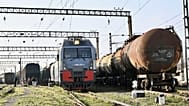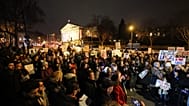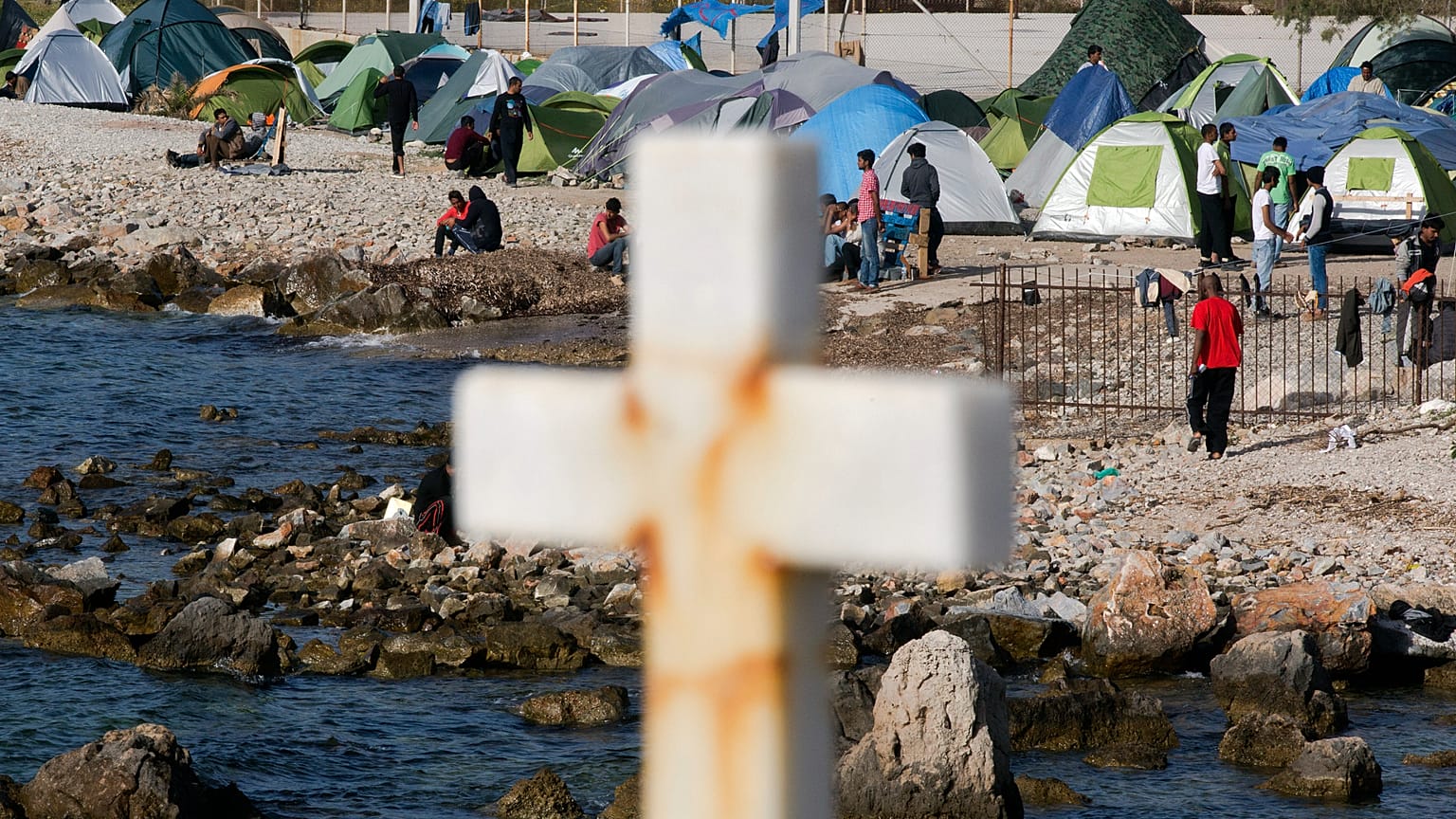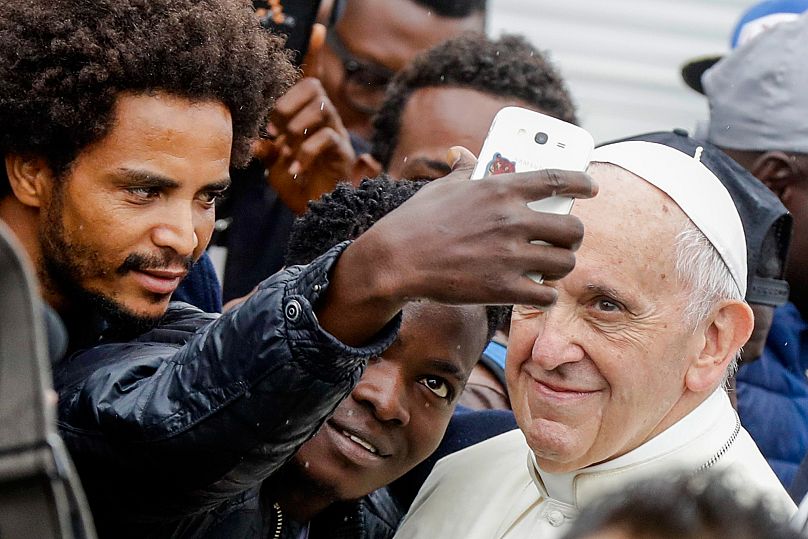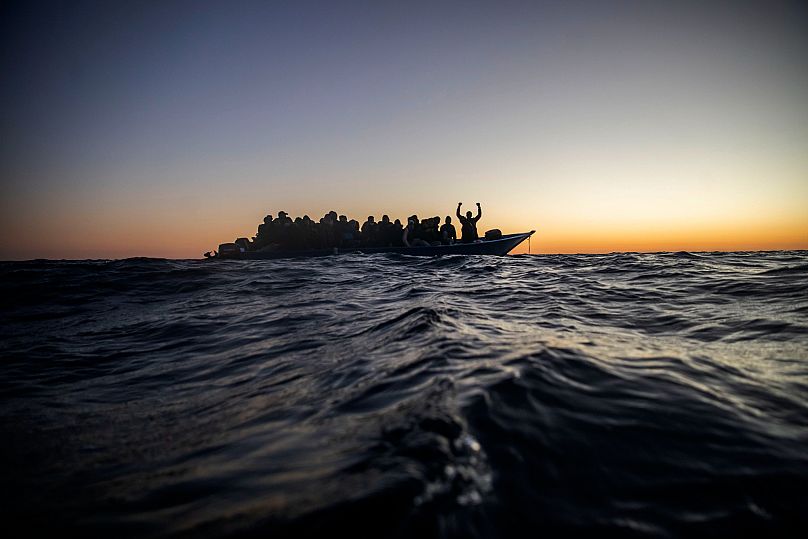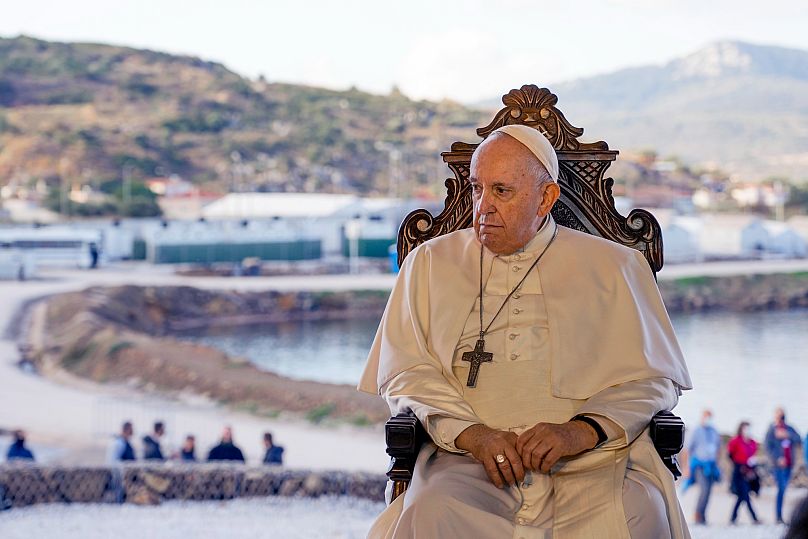Pope Francis, who himself came from a family of immigrants, has consistently urged for humane treatment of migrants.
Pope Francis' first official trip, soon after he took the helm of the Catholic Church in 2013, set the tone for what was to come.
He chose to visit the tiny Italian island of Lampedusa, one of the main entry points for migrants into Europe via the Mediterranean Sea. There, he condemned what he called the "globalisation of indifference," in a stern message to the world.
"We have become used to the suffering of others. It doesn't affect us. It doesn't interest us. It's not our business," the pontiff said.
Born Jorge Mario Bergoglio in 1936, he also came from a family of immigrants who left Italy for Argentina.
Throughout his papacy, Pope Francis never relented in his appeals to world leaders and ordinary citizens to treat migrants with humanity.
During a 2023 visit to the French city of Marseille, he said that migration is a "reality of our times" and not a short-term emergency.
He urged Europe to respond with "wise foresight" and solidarity to the surge in arrivals, and the need for a pan-European response was one of his most repeated pleas.
Moral duty to rescue and welcome
Pope Francis consistently emphasised the moral imperative to rescue migrants in danger, particularly those crossing the Mediterranean Sea.
He described efforts to block rescue operations as "gestures of hate" and insisted that "people who are at risk of drowning when abandoned on the waves must be rescued."
Speaking at a meeting of bishops and young people from Mediterranean countries, the pontiff also said in Marseille, "Those who risk their lives at sea do not invade."
"There is a cry of pain that resonates most of all and it is turning the Mediterranean, the 'mare nostrum' (our sea in Latin), from the cradle of civilisation into the 'mare mortuum' (sea of death in Latin), the graveyard of dignity," he said.
The Mediterranean Sea has become one of the world's largest migrant graves since 2014, with more than 30,000 deaths, according to the International Organization for Migration's Missing Migrants Project.
As pressure surged in Italy and elsewhere in Europe to crack down on illegal migration, Pope Francis made a plea to end the practice of returning those people rescued at sea to Libya and other unsafe countries where they suffer "inhumane violence".
He called detention facilities in Libya "true concentration camps".
'To welcome, protect, promote and integrate'
To the pontiff, welcoming meant offering broader options for migrants and refugees to enter destination countries safely and legally.
Pope Francis called for opening humanitarian corridors for particularly vulnerable refugees, insisting on the need for a wider number of legal entrances, especially for those fleeing war, hunger and poverty.
He also asked states to increase and simplify the processes for humanitarian visas and family reunification.
The pope was against collective and arbitrary expulsions of migrants and refugees, particularly where people are returned to countries which cannot guarantee their fundamental rights.
He called for a greater number of countries to adopt private and community sponsorship programmes and grant special temporary visas to people fleeing conflicts in neighbouring countries.
The Pope and Trump
"A person who thinks only about building walls, wherever they may be, and not building bridges, is not Christian," Pope Francis said in 2016 while on a trip to Mexico.
At the time, Donald Trump was a presidential candidate and was campaigning to build a wall along the US-Mexico border.
By the end of Trump's first term in 2021, 724 kilometres of wall had been completed, mostly replacing old structures put up during the Bill Clinton and George W Bush administrations.
The current Trump administration's migrant deportation policy was one of the pope's final battles.
On the campaign trail and into his second presidency, Trump repeated threats to deport thousands of migrants who had entered the US illegally.
Some of those efforts have been met with legal challenges, and earlier in April, a federal judge said the administration may have acted in contempt of court for ignoring an order not to turn around planes carrying migrants bound for El Salvador.
On Easter Sunday, the day before his death, Pope Francis met with US Vice President JD Vance. The meeting was seen as a rapprochement between the Trump administration and the Vatican, after Pope Francis repeatedly criticised the US administration's tough immigration policies.
Pope Francis said in January that if Trump's plans for mass deportations were implemented, it would be a "disgrace".


